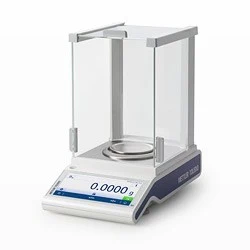Analytical Chemistry
Definition
of Analytical Chemistry- Analytical Chemistry is the branch of
chemistry deals with the study of material examination to separate out them
into different components and identifying all components and how much these
components present in material. There are different analytical methods and
techniques to perform these tasks.
Analytical chemistry is all
about, what an analytical chemist do in an analytical chemistry lab. And simply
we can say that analytical chemistry is the branch of chemistry for qualitative
analysis and quantitative analysis of compounds and mixtures by using different
test methods and techniques like flame tests, chemical tests, precipitation,
titration, chromatography, spectroscopy, separation, microscopy etc.
Types of Analytical Methods
Analytical chemistry uses
two types of methods for analysis that are classical and modern methods. Classical
methods are wet chemical methods while modern methods are instrumental methods.
Classical analytical methods are further subdivided into two categories i.e. 1.
Classical Qualitative Analytical Methods and 2. Classical Quantitative
Analytical Methods. Similarly, Modern analytical methods are further subdivided
into two categories i.e. 1. Modern Qualitative Analytical Methods and 2. Modern
Quantitative Analytical Methods.
A. Classical Analytical Methods
1.
Classical
Qualitative Analytical Methods
Classical qualitative analytical methods uses
precipitation, extraction, and distillation
for separation purpose and differences in color,
odor, melting point, boiling point, reactivity for identification purpose.
Some of the classical qualitative analytical methods
are given below-
a) Flame
Test
2.
Classical
Quantitative Analytical Methods
Classical quantitative analytical methods
uses change in mass and volume for quantification of amount of particular analyte
in analytical sample.
Some of the classical quantitative analytical
methods are given below-
a) Gravimetric
Analysis
B. Modern Analytical Methods
1.
Modern
Qualitative Analytical Methods
Modern qualitative analytical methods uses chromatography, electrophoresis for
separation purpose and uses instruments for identification purposes.
2.
Modern
Quantitative Analytical Methods
Modern quantitative analytical methods uses different instruments for quantitative analysis. These instruments
are based on the principles of light or heat interaction, electric
or magnetic
fields. Generally a single modern instrument is enough for separation, identification and quantification of an
analyte.
Modern analytical methods
uses different instruments so we can say that modern analytical methods are
Instrumental methods. And some of them are given below-
a)
Spectroscopy
What is an Analytical Chemist ?
Analytical chemist is a chemical scientist
who have all knowledge about analytical chemistry with other branches of
chemistry like physical, organic and inorganic chemistry. They works in
chemical labs or analytical chemistry laboratories to analyses different
chemical compounds and mixtures.
What does an analytical chemist do ?
Analytical Chemist analyses
samples to find out different analytes. They do different experiments in
chemical labs to know about exact chemical component present in sample.
Analytical chemist get all information from a sample means what that sample contains
and how much contains. Nowadays analytical chemist do different researches to
make analysis quick and more accurate by the use of modern techniques and
modern equipment and advanced software’s.
Where does an analytical chemist work ?
Analytical chemistry work in
chemical labs and analytical chemistry labs, means they conduct their
experiment inside labs and then come back to analytical labs offices to
interpret with experimental data.
Do you know ?



%20(1).png)
